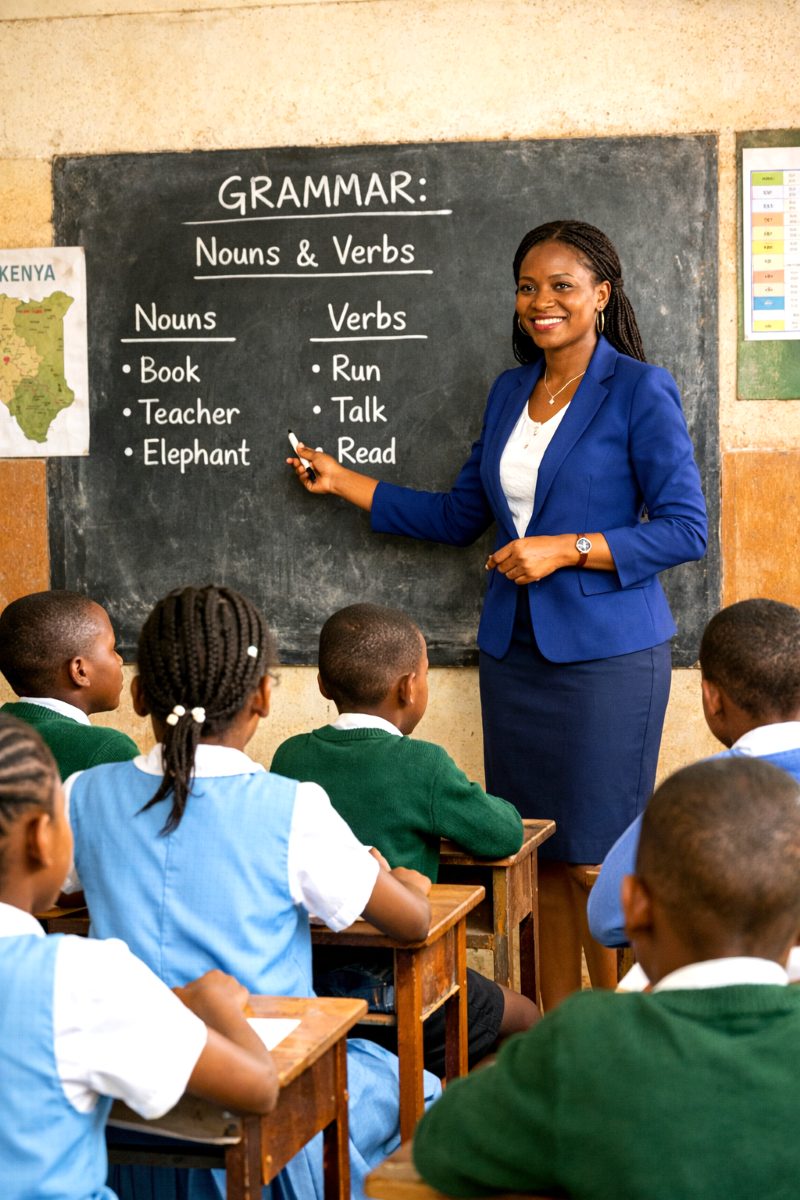A significant wave of indiscipline and irresponsible behavior has been observed among Junior Secondary School (JSS) learners, a trend that has raised concerns among educators, parents, and policymakers alike. Adolescence is a critical stage marked by rapid physical, emotional, cognitive, and social development. Learners experience heightened curiosity, increased sensitivity, and a strong desire for independence. While these developmental changes are natural and necessary for growth, they also create challenges in maintaining discipline and promoting responsibility.
Many headteachers are reportedly struggling to manage indiscipline among JSS learners, a situation that has become increasingly complex in recent years. The developmental changes typical of adolescence, combined with peer pressure, exposure to technology, and varying home environments, place immense pressure on school administrators. Headteachers are often tasked with balancing academic performance, student welfare, teacher supervision, and discipline enforcement, yet many report that traditional strategies are proving insufficient. This struggle can lead to inconsistent enforcement of rules, overreliance on punitive measures, or teacher burnout, which further exacerbates learner misbehavior. To address this, schools need to support headteachers with clear policies, training in adolescent behavior management, and collaborative frameworks involving teachers, parents, and community leaders. Providing headteachers with mentorship networks and access to evidence-based interventions can empower them to implement effective discipline strategies while fostering a positive and supportive school environment.
Indiscipline and irresponsible behavior in JSS learners manifest in various ways, including truancy, lateness, academic negligence, disrespect for authority, defiance, poor time management, misuse of technology, and negative peer influence. Such behaviours, if not addressed, can compromise learning outcomes, hinder social development, and negatively impact the prospects of learners. Beyond the classroom, these behaviors often reflect larger social and environmental influences, including peer pressure, family background, access to digital media, and community norms. Addressing these challenges requires a holistic, evidence-based approach that considers the developmental needs of adolescents and incorporates practical strategies for guidance, mentorship, and structured support. This essay explores the types of irresponsible behavior among JSS learners, their underlying causes, and effective strategies for intervention, offering insights that can guide schools, teachers, and parents in nurturing responsible, self-disciplined, and socially competent learners.
Truancy and Lateness
One of the most common manifestations of irresponsibility among JSS learners is truancy and lateness. Learners often skip classes, arrive late to school, or leave early due to lack of motivation, peer influence, or inadequate supervision. This behavior not only disrupts the learning environment but also sets a precedent for long-term academic negligence and irresponsibility. In some cases, learners may view school attendance as optional, particularly when they perceive lessons as unengaging or irrelevant to their personal interests.
Schools can address truancy and lateness through a combination of monitoring, engagement, and positive reinforcement. Close monitoring of attendance records allows educators to identify patterns of absenteeism and intervene early. Reward systems, such as recognition awards for consistent attendance or punctuality, encourage learners to adhere to school schedules. Mentorship programs can guide learners in prioritizing academic responsibilities and developing effective time-management skills.
Parental involvement is also critical. Parents who actively monitor their children’s attendance, discuss the importance of schooling, and collaborate with teachers can significantly reduce truancy. Real-life examples from schools that have implemented parent-teacher attendance monitoring programs show a marked improvement in punctuality, as learners understand that absenteeism is noticed and addressed consistently.
Disrespect Towards Teachers and Peers
Disrespect is another prevalent form of irresponsible behavior among JSS learners. It may manifest as talking back to teachers, ignoring instructions, engaging in verbal or physical conflicts with peers, or challenging authority. Emotional immaturity, peer influence, and the desire for autonomy often contribute to this behavior. Disrespect can disrupt classroom learning, create tension among learners, and weaken the authority of teachers if left unchecked.
Addressing disrespect requires a multi-faceted approach. Schools should establish clear rules and expectations regarding behavior and communicate these consistently to learners. Role-playing exercises and guided discussions can help learners develop empathy, effective communication skills, and conflict-resolution abilities. Positive reinforcement, such as acknowledging respectful behavior, encourages learners to emulate these behaviors consistently. Highlighting role models—both teachers and senior students—demonstrates the value of respect and responsible conduct in real-world contexts.
Consistent disciplinary measures are also necessary to manage disrespectful behavior. While punitive measures alone are insufficient, fair and transparent consequences for repeated violations help learners understand boundaries and internalize the importance of respectful interactions. Involving parents in these interventions ensures that lessons about respect are reinforced at home, creating consistency across learning environments.
Academic Negligence
Academic negligence is common among JSS learners, where students fail to complete assignments, perform poorly in tests, or show general disinterest in learning. This behaviour often stems from low motivation, distractions, lack of parental support, or insufficient guidance from teachers. Academic negligence can have long-term consequences, affecting not only performance in secondary education but also opportunities for higher education and career prospects.
Failure to Complete Assignments
A specific aspect of academic negligence is the failure to complete assignments. Many learners struggle with meeting deadlines, understanding the tasks, or managing their workload effectively. This behaviour results in gaps in knowledge, poor performance in assessments, and diminished self-confidence. Learners who habitually fail to complete assignments may also develop a pattern of procrastination and irresponsibility that affects other areas of life.
Schools can address this challenge through structured support systems. Teachers should provide clear instructions and set realistic deadlines, while monitoring completion rates closely. Study groups or peer mentoring encourage accountability and help learners understand tasks more effectively. Positive reinforcement, such as acknowledging consistent effort and improvement, motivates learners to develop responsibility. Parental involvement—monitoring homework, providing a quiet study environment, and engaging in regular discussions about schoolwork—reinforces the importance of completing assignments.
READ ALSO:
Nyamira University College ground-breaking set for this Friday
Encouraging learners to break larger tasks into smaller, manageable steps and teaching them time-management strategies can prevent procrastination and build self-discipline. Through these measures, schools can reduce assignment-related negligence, improve academic performance, and instill a sense of responsibility that extends beyond the classroom.
To combat academic negligence more broadly, schools can implement tutoring programs, mentorship initiatives, and goal-setting exercises. Encouraging learners to track their progress fosters accountability and intrinsic motivation. Recognizing both effort and achievement reinforces positive behavior and instills a culture of responsibility. Peer collaboration also supports learning, as learners hold each other accountable and share knowledge, reducing the likelihood of neglecting academic tasks.
Peer Pressure and Negative Influence
Adolescents are highly susceptible to peer influence, which can encourage irresponsible or anti-social behaviors. Learners may engage in bullying, gossip, rule-breaking, or other disruptive activities to gain acceptance, approval, or social status among peers. Peer pressure is a significant driver of indiscipline, particularly when learners lack strong moral guidance or positive role models.
Schools can mitigate peer pressure through awareness programs that teach learners to recognize and resist negative influences. Mentorship initiatives, where senior students model positive behavior, provide tangible examples of responsible conduct. Structured group activities—such as debate clubs, sports, arts, and community service—encourage teamwork, collaboration, and the development of healthy social networks. These activities offer learners safe spaces to form friendships based on shared values and constructive engagement rather than conformity to negative behaviors.
Misuse of Technology and Social Media
The increasing use of technology and social media among adolescents introduces new challenges in promoting responsible behavior. Learners may become distracted, engage in cyberbullying, or adopt inappropriate behaviours observed online. Unregulated access to digital platforms can exacerbate indiscipline and encourage patterns of irresponsibility.
Addressing technology misuse requires schools to integrate digital literacy programs that teach responsible online behavior, critical thinking, and self-regulation. Establishing clear guidelines for phone and internet use during school hours ensures that learners remain focused on academic and social development. Encouraging participation in alternative productive activities—such as sports, reading, or clubs—reduces overreliance on digital media. Schools that actively teach learners the consequences of irresponsible digital behavior report significant improvements in attention, discipline, and social interactions.
Defiance and Rule-Breaking
Defiance, characterized by openly challenging authority or deliberately breaking rules, is a frequent manifestation of irresponsibility among JSS learners. Such behaviour is often motivated by a desire for attention, testing boundaries, or asserting independence. Left unchecked, defiance can undermine classroom order and compromise the learning environment.
Participatory rule-setting is an effective strategy to manage defiance. By involving learners in establishing rules and expectations, schools promote ownership and accountability. Consistent consequences, mentorship, and counseling provide learners with guidance on navigating behavioral challenges constructively. Highlighting positive role models further reinforces desirable behaviours, encouraging learners to emulate responsible conduct and internalize self-discipline.
Poor Time and Task Management
Poor time and task management contributes to irresponsibility among learners. Procrastination, missed deadlines, and neglected responsibilities often result from inadequate planning, lack of organizational skills, or underdeveloped self-discipline. These behaviours not only affect academic performance but also hinder the development of personal responsibility and lifelong skills.
Schools can address poor time management by teaching learners to use planners or journals, break large tasks into manageable steps, and set realistic goals. Encouraging reflection and self-assessment helps learners monitor their progress, identify challenges, and develop strategies for improvement. Celebrating incremental achievements reinforces accountability and fosters intrinsic motivation, enabling learners to develop the discipline necessary for academic and personal success.
Holistic Interventions for Behavior Management
Successfully addressing indiscipline and irresponsible behavior among JSS learners requires a holistic, multi-layered approach. Educators must first understand the root causes of misbehavior through observation, counseling, and open communication. Structured guidance and mentorship provide learners with safe spaces to navigate academic, social, and personal challenges. Participatory classroom management promotes ownership of rules, while positive reinforcement motivates learners to adopt responsible behaviors.
Consistent and fair disciplinary measures ensure learners understand the consequences of misconduct without undermining self-esteem. Extracurricular engagement provides productive outlets for energy, creativity, and leadership, while social-emotional learning equips learners with empathy, conflict-resolution, and stress-management skills. By combining these strategies, schools create environments that support holistic development and foster long-term responsibility.
Role of Parents and Guardians
Parental involvement is critical in reinforcing positive behaviour and addressing irresponsible conduct. Parents who monitor academic progress, maintain communication with teachers, engage learners in discussions about values and consequences, and model responsible behavior at home provide consistent support that significantly reduces indiscipline. Collaboration between home and school ensures that learners receive guidance from multiple angles, strengthening accountability and social development. Schools that actively involve parents in behaviour management initiatives consistently report improved learner conduct and academic performance.
Developing Emotional and Social Skills
Social-emotional learning equips learners with empathy, conflict-resolution skills, stress management, and effective communication. Workshops, role.
By Hillary Muhalya
>>> Click here to stay up-to-date with trending regional stories
>>> Click here to read more informed opinions on the country’s education landscape
>>> Click here to stay ahead with the latest national news.






